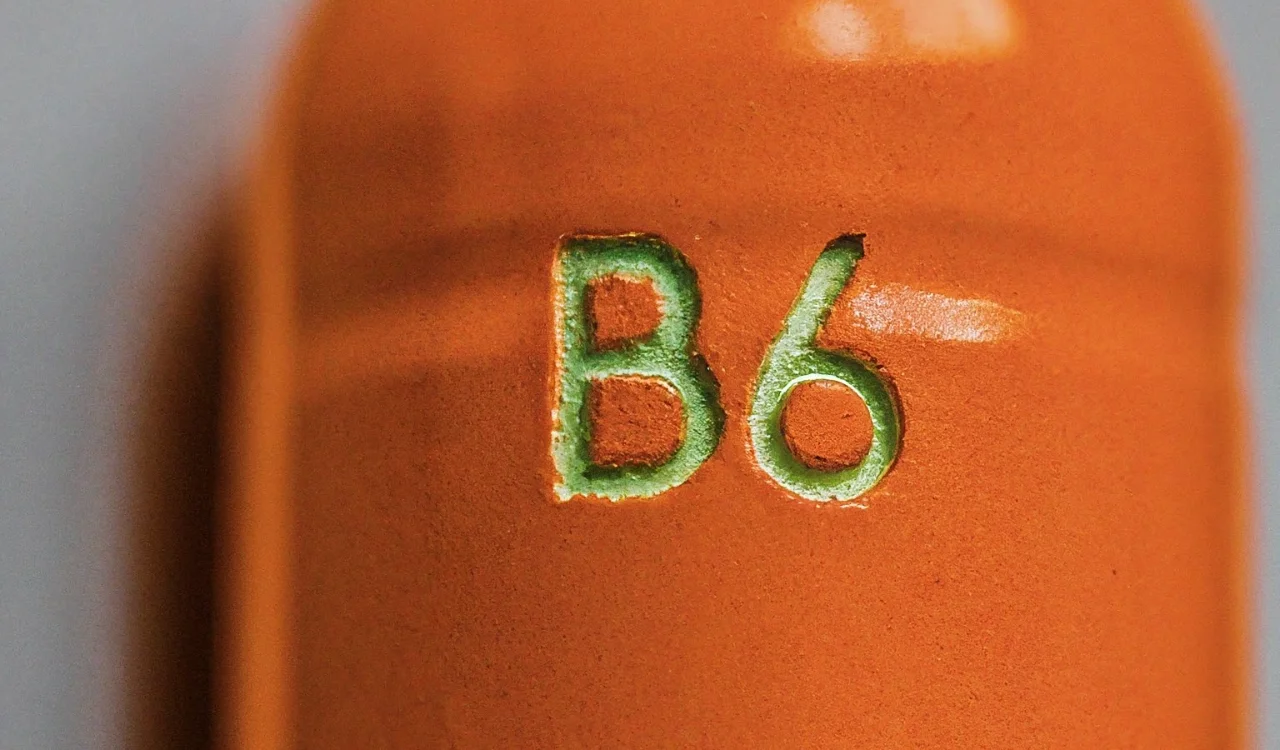Vitamin B6, also known as pyridoxine, is a vital nutrient that plays a significant role in various bodily functions. It’s essential for maintaining good health, supporting brain function, and keeping the immune system robust. This blog post will explore the importance of Vitamin B6, its benefits, plant-based sources, deficiency symptoms, and supplementation advice, focusing exclusively on vegan-friendly options. The Comprehensive Guide to Vitamin B6 for Vegans:
The Importance of Vitamin B6
Vitamin B6 is crucial for:
- Metabolism: It assists in converting food into energy, supporting the metabolism of carbohydrates, proteins, and fats.
- Brain Health: It contributes to the production of neurotransmitters, which are vital for brain function and mood regulation.
- Immune Function: It aids in maintaining a healthy immune system and helps the body produce antibodies.
- Red Blood Cell Formation: It’s necessary for the production of hemoglobin, the protein in red blood cells that carries oxygen.
Plant-Based Dietary Sources of Vitamin B6
Vegans can easily meet their Vitamin B6 needs through a variety of plant-based foods. Here are some excellent sources:
- Vegetables:
- Potatoes and Sweet Potatoes: Both are versatile and rich in Vitamin B6.
- Carrots: A nutritious root vegetable that can be eaten raw or cooked.
- Fruits:
- Bananas: Not only are they a great snack, but they also provide a good amount of Vitamin B6.
- Avocados: This creamy fruit is packed with nutrients, including Vitamin B6.
- Nuts and Seeds:
- Sunflower Seeds: A great snack or salad topper, rich in Vitamin B6.
- Pistachios: These tasty nuts are another good source of this essential vitamin.
- Legumes:
- Chickpeas: Whether in hummus or as a part of a salad, chickpeas are an excellent source of Vitamin B6.
- Lentils: Versatile and nutritious, lentils can be used in soups, stews, and salads.
- Whole Grains:
- Brown Rice: A staple in many diets, brown rice is also a good source of Vitamin B6.
- Oats: Perfect for breakfast, oats can help you start your day with a boost of Vitamin B6.
- Fortified Cereals: Many cereals are enriched with vitamins, including Vitamin B6. Always check the labels to ensure you’re getting a good source.
- Soy Products:
- Tofu: This versatile protein source is also rich in Vitamin B6.
- Tempeh: A fermented soy product that’s nutrient-dense and contains Vitamin B6.
Recognizing Vitamin B6 Deficiency
Although a deficiency in Vitamin B6 is uncommon, it’s essential to be aware of the symptoms, which can include:
- Anemia: Since Vitamin B6 is involved in hemoglobin production, a deficiency can lead to anemia.
- Skin Problems: Dermatitis and skin rashes can occur.
- Mood Changes: Depression, irritability, and confusion can be signs of low Vitamin B6 levels.
- Weakened Immune Function: A lack of Vitamin B6 can impair immune response, making one more susceptible to infections.
Supplementation: When and How
While it’s always best to get nutrients from food, supplements can be helpful in certain situations. Here are some guidelines:
- Consult a Healthcare Professional: Before starting any supplement, it’s crucial to talk to a healthcare provider to determine if you need it and to establish the correct dosage.
- Choose High-Quality Supplements: Opt for reputable brands that provide high-quality, vegan-friendly Vitamin B6 supplements.
- Monitor Your Levels: Regularly check your Vitamin B6 levels, especially if you’re experiencing symptoms of deficiency.
- Balanced Diet: Ensure your diet includes a variety of Vitamin B6-rich foods to naturally support your nutrient intake.
Integrating Vitamin B6-Rich Foods into Your Vegan Diet
Here are some delicious and easy ways to incorporate more Vitamin B6 into your vegan meals:
- Breakfast:
- Oatmeal with Banana and Nuts: Start your day with a bowl of oatmeal topped with sliced bananas and a sprinkle of sunflower seeds or pistachios.
- Smoothies: Blend bananas, avocados, and a handful of spinach for a nutrient-packed smoothie.
- Lunch:
- Lentil Soup: A hearty lentil soup not only warms you up but also provides a good dose of Vitamin B6.
- Chickpea Salad: Toss chickpeas with fresh vegetables and a light vinaigrette for a refreshing and nutritious salad.
- Dinner:
- Stuffed Sweet Potatoes: Bake sweet potatoes and stuff them with a mix of black beans, corn, and diced avocados.
- Stir-Fry with Brown Rice: Create a colorful stir-fry with a variety of vegetables and serve it over brown rice.
- Snacks:
- Roasted Chickpeas: Season chickpeas with your favorite spices and roast them for a crunchy snack.
- Pistachios: Keep a small bag of pistachios handy for a quick, nutrient-rich snack.
The Science Behind Vitamin B6
Understanding the biochemical functions of Vitamin B6 can highlight its importance:
- Enzyme Co-Factor: Vitamin B6 acts as a coenzyme in over 100 enzyme reactions, primarily in protein metabolism. It helps in the synthesis of neurotransmitters like serotonin and dopamine, which regulate mood and mental function.
- Amino Acid Metabolism: It plays a crucial role in the metabolism of amino acids, the building blocks of proteins. This is vital for muscle repair and growth, as well as overall cellular function.
- Glycogen Breakdown: Vitamin B6 is involved in the breakdown of glycogen to glucose, providing energy, especially during physical activity.
- Homocysteine Regulation: It helps regulate homocysteine levels in the blood, which is important for cardiovascular health. High levels of homocysteine are associated with an increased risk of heart disease.
Tips for Maximizing Vitamin B6 Absorption
- Pair with Other Nutrients: Vitamin B6 works synergistically with other B vitamins, so ensure your diet includes a variety of B vitamin sources.
- Cook Vegetables Lightly: Overcooking can reduce the Vitamin B6 content in vegetables. Steaming or lightly sautéing them can help retain more of the vitamin.
- Store Foods Properly: Exposure to light and heat can degrade Vitamin B6. Store your food in cool, dark places to preserve its nutrient content.
Addressing Common Concerns
- Can Vegans Get Enough Vitamin B6?
- Absolutely. With a well-planned diet that includes a variety of plant-based foods, vegans can easily meet their Vitamin B6 needs.
- Is Supplementation Necessary?
- Most people can meet their Vitamin B6 requirements through diet alone. However, those with certain health conditions or dietary restrictions may need supplements.
- Are Plant-Based Sources as Effective?
- Yes, plant-based sources of Vitamin B6 are effective and can provide adequate amounts of this nutrient when consumed as part of a balanced diet.
Conclusion
Vitamin B6 is an essential nutrient that supports numerous bodily functions, from energy metabolism to brain health. For those following a vegan diet, there are plenty of plant-based sources available to meet daily requirements. By incorporating a variety of Vitamin B6-rich foods such as vegetables, fruits, nuts, seeds, legumes, and whole grains, vegans can ensure they receive adequate amounts of this vital nutrient. If supplementation is necessary, it should be done under the guidance of a healthcare professional. Embrace a diverse and balanced vegan diet to maintain optimal health and well-being.


Leave a Reply